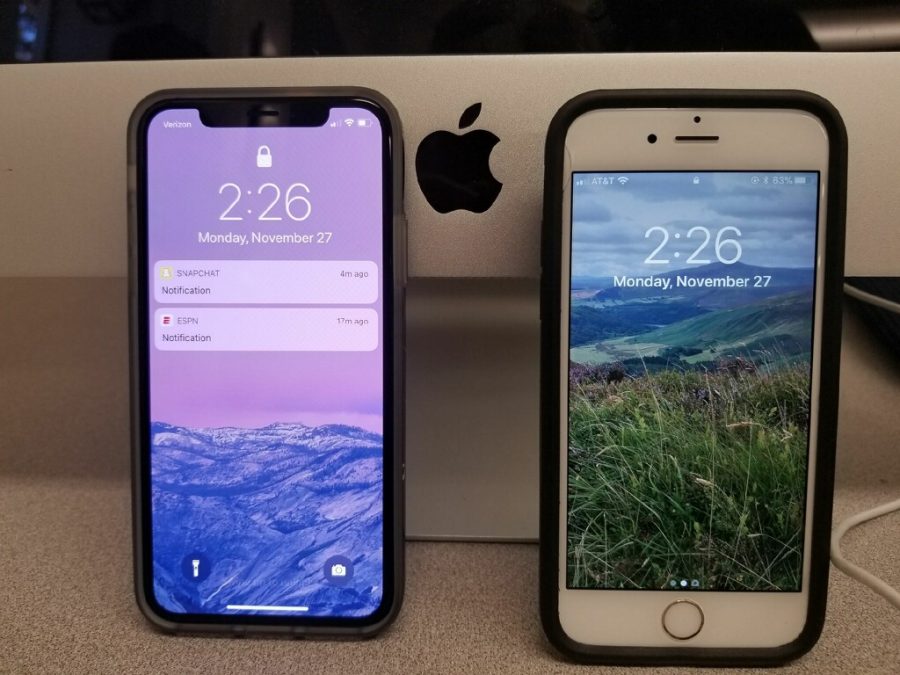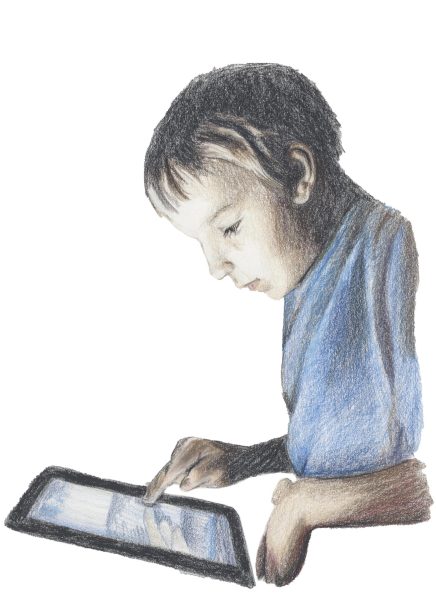Face ID Versus Touch ID
With the release of the pricy iPhone X, Apple has completely overhauled and upgraded their classic mobile phone. But of all the new features the phone provides, the most notable is clearly “Face ID,” which allows the user to unlock their phone via facial recognition. In short, you can unlock your phone by looking at the camera. This method has replaced the traditional Touch ID, a fingerprint scanner built into the home button of the phone. But is Face ID really better than Touch ID? What are the pros and cons of this advancement, and does it make buying the new iPhone worth the massive price tag? For starters, Face ID is more reliable than you may think. One of the most important abilities of this technology is its ability to accurately recognize someone’s face even if it is slightly changed (such as shaving, putting on makeup, et cetera). According to Apple, “Face ID automatically adapts to changes in your appearance, such as wearing cosmetic makeup or growing facial hair.” Additionally, the scanner is apparently very hard to fool. Wired.com reports that after hiring a biometric hacker and Hollywood face-caster to recreate one of their employees faces, the device was still able to figure out that the face wasn’t real. However, it should be noted that the feature can be fooled by identical twins. So we’ve established that the system is more secure than many initially thought, but what are some of the complaints surrounding Face ID? For one, when compared with Touch ID, Face ID is noticeably slower to use than its counterpart. However, this is only true when comparing how fast the two methods unlock the phone. When opening notifications or making purchases, Face ID is much more intuitive. Then there’s the big issue, at least in my eyes: privacy. Because the phone now stores a scan of your face (referred to as a biometric) rather than simply your fingerprint, some were scared that third parties would have access to what they looked like if the information was somehow leaked. Fortunately, the biometric is stored only on your phone, and never leaves the device unless your phone is hacked, so it is highly unlikely that someone will run into this issue. All in all, I do think that Face ID is a significant improvement over its predecessor. Sure, there are flaws with this method, such as it is unable to tell identical twins from one another, but the potential Face ID has to be an efficient and effortless system for your phone makes it a massive leap in the right direction for Apple. In a time where the most recent additions to Apple’s lineup of phones has been underwhelming in terms of both features and revenue for the company, FaceID helps provide a sense of excitement surrounding the company’s product that the consumer likely hasn’t felt for several generations of iPhone releases. Maybe Apple isn’t dead after all.
Your donation will support the student journalists of Laguna Blanca School. Your contribution will allow us to purchase equipment and cover our annual website hosting costs.

Ian joins our staff this year as News Editor. He likes skiing, backpacking, and running! Ian mostly enjoys writing about national politics for either op-ed...














